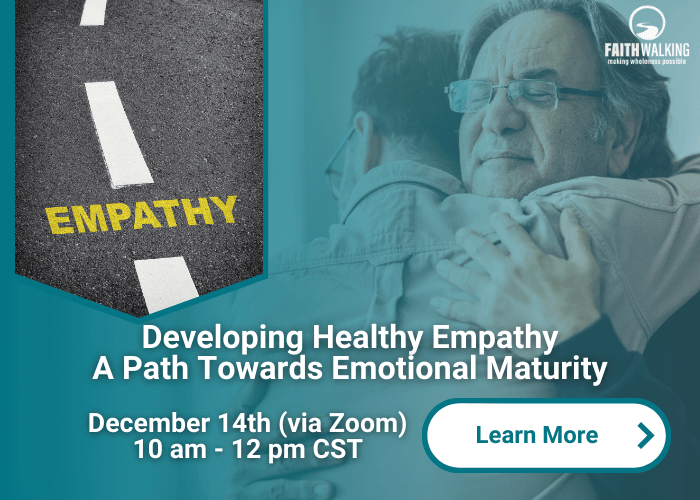 Anxiety is the state of being constantly uneasy or overly concerned about problems that arise, and is a reality of life for many of us. When anxiety takes over our lives, it can lead to harmful patterns that keep us from living a full and healthy life. For example, instead of using our judgment to fully discern each situation, anxiety often forces us to become reactionary. While this might be helpful in situations that need immediate reaction, it can be harmful for those who struggle with chronic stress.
Anxiety is the state of being constantly uneasy or overly concerned about problems that arise, and is a reality of life for many of us. When anxiety takes over our lives, it can lead to harmful patterns that keep us from living a full and healthy life. For example, instead of using our judgment to fully discern each situation, anxiety often forces us to become reactionary. While this might be helpful in situations that need immediate reaction, it can be harmful for those who struggle with chronic stress.
Chronic stress is often associated with something that happened to us in the past; something that, perhaps, changed the way we view ourselves. When something happens that reminds us of those past actions and hurts, anxiety is often triggered, and we employ defense mechanisms that we learned at a young age to remove the hurt. The problem with this is that sometimes we employ these defense mechanisms inappropriately or unnecessarily.
The aim here is not to remove anxiety completely, rather to understand how to better manage the self while anxiety is at its peak. The first step in doing this is learning to pinpoint the physiological signs of anxiety. As we develop this particular ability, we are able to see how anxiety affects both ourselves and the community around us. In turn, we will be able to clearly think through how we want to respond to situations using the principles that matter to us most, rather than our gut reactions.
The Signs of Anxiety
Our body will often give us signs that let us know that anxiety is increasing. When we become anxious and stressed, the body triggers a physiological reaction known as the “fight or flight” response. At this time, adrenaline levels are at a high, as the body releases stress hormones called cortisol. If the “fight or flight” response is triggered on a daily basis, or even a few times a day, the increase in stress hormones can make blood sugar levels rise and cause other physical symptoms, the first of which is usually a rapid heartbeat.
Sweating is another physical sign of anxiety and happens even in the most common cases of anxiety and nervousness, such as a job interview or an important test. Sweating is a direct result of our body’s need to cool down, and it does this because the body naturally uses more energy when stress hormones are released and the heart is beating faster.
Dizziness is normally the next sign that we might be overly anxious. Because our bodies are working harder than they should, we will burn energy at a rapid pace. Without the means to replenish the body of proper energy and fuel, we might start to feel dizzy, or even nauseous. This can also lead to a lack of concentration and fatigue.
While these include some of the more immediate signs of anxiety, there are many more short-term and long-term effects, some of which are serious. Hopefully, by learning how our bodies react to anxiety as soon as it occurs, we can begin to properly manage it in order to achieve healthy transformation and wholeness.
photo credit: Kerri Lee Smith via photopin cc


